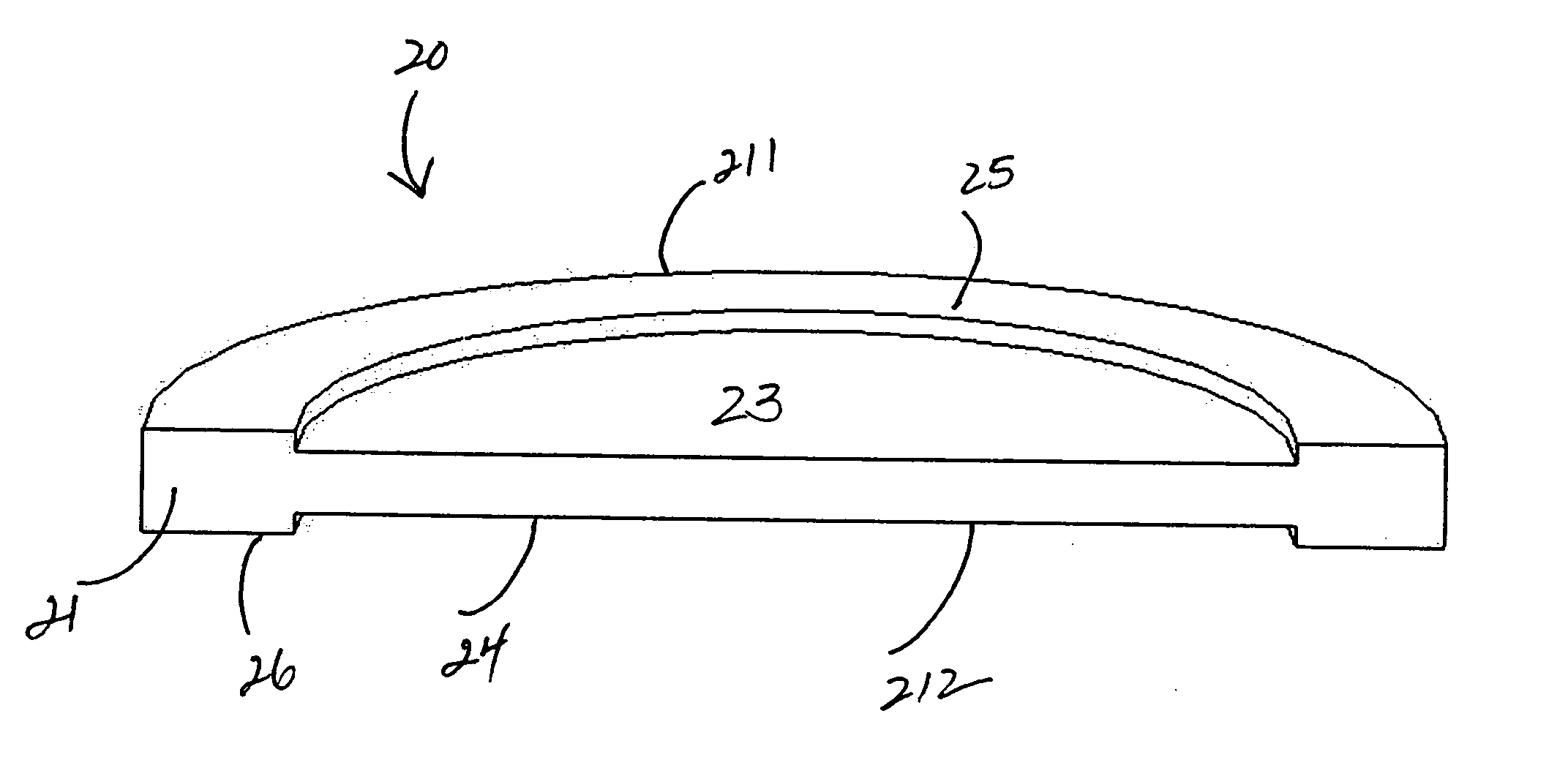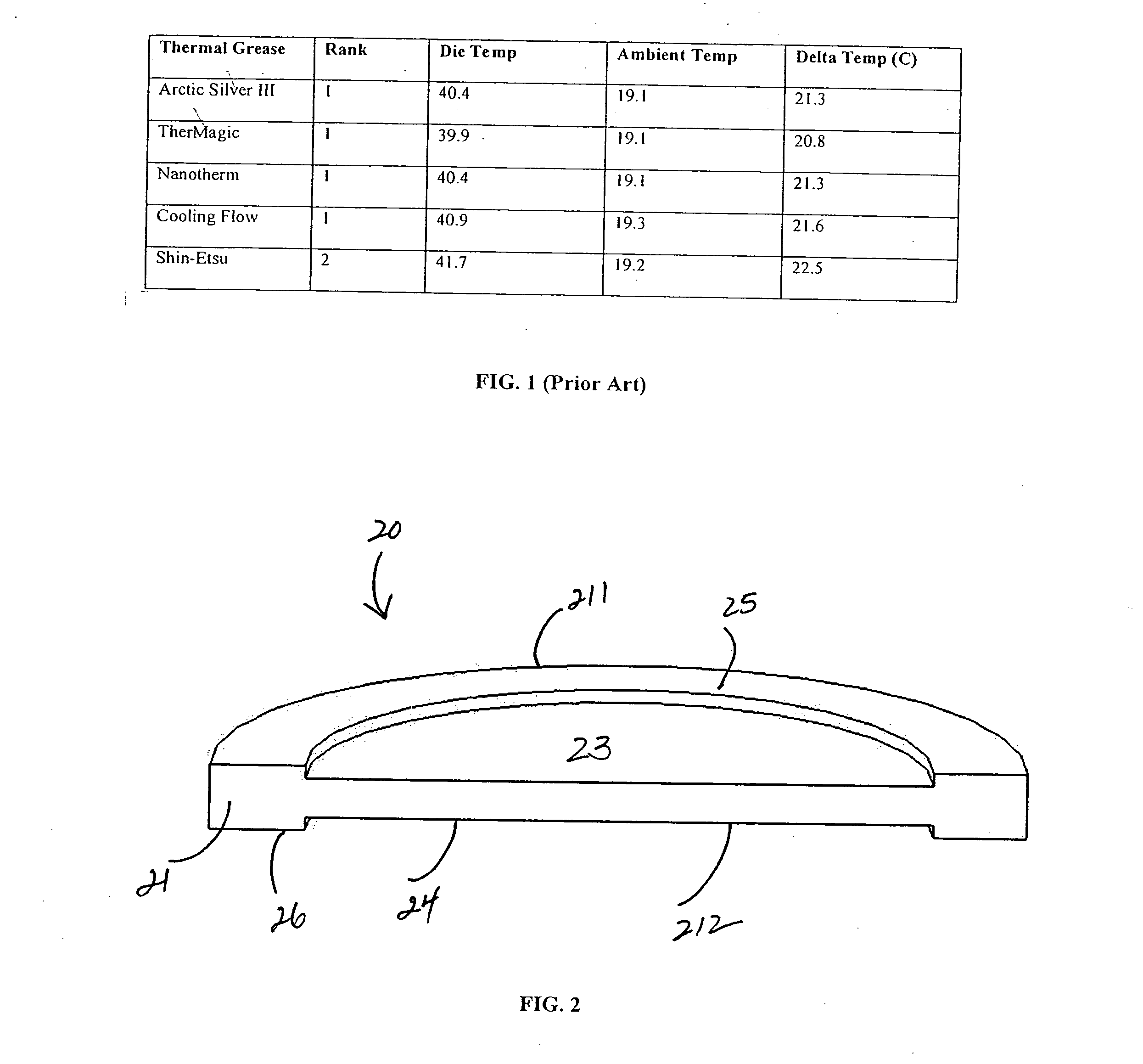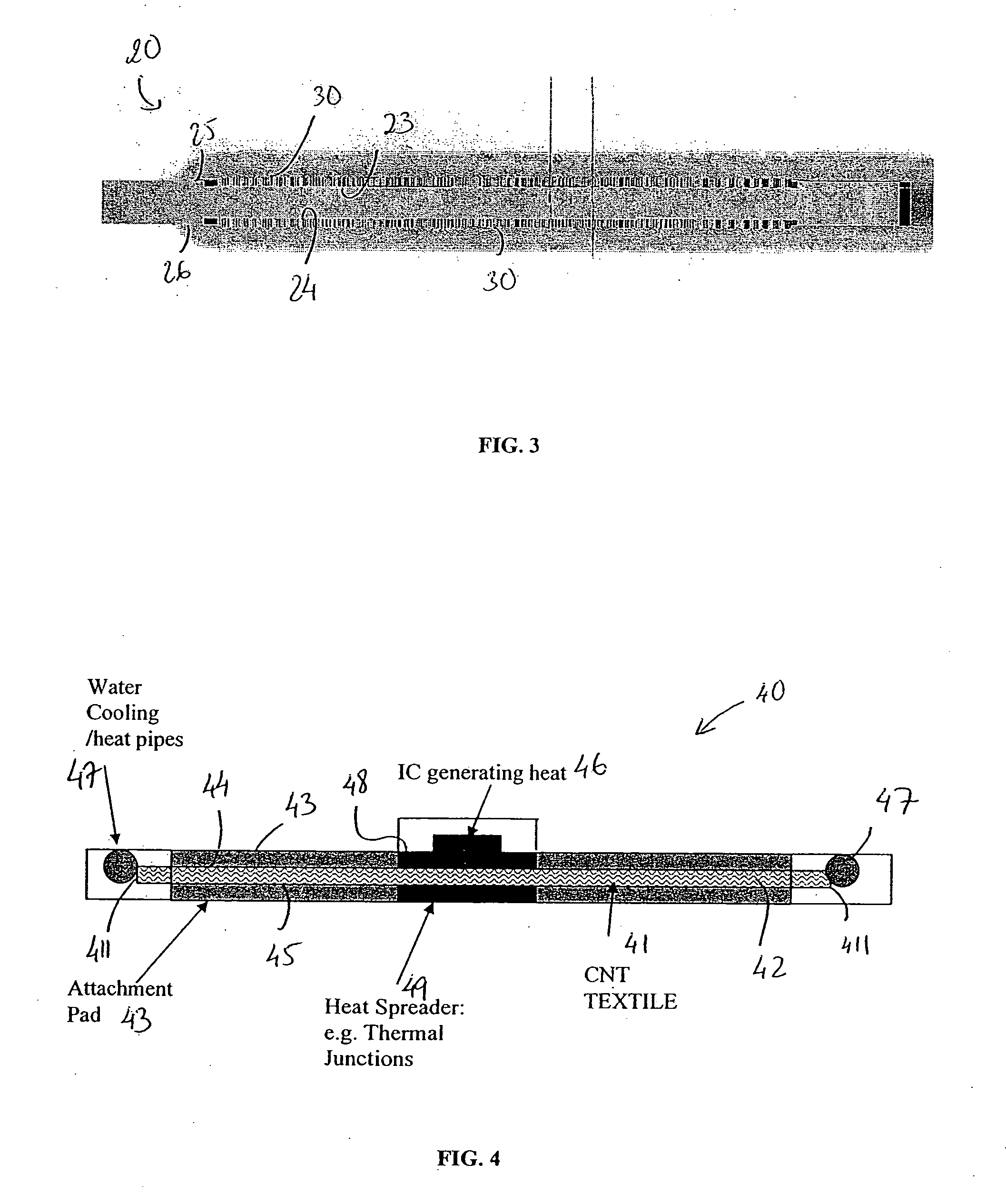Systems and methods for thermal management of electronic components
- Summary
- Abstract
- Description
- Claims
- Application Information
AI Technical Summary
Benefits of technology
Problems solved by technology
Method used
Image
Examples
Embodiment Construction
[0020] The present invention provides, in one embodiment, a medium for thermal management of electronic components. The medium, in an embodiment may be a thinly designed device that may be place at a thermal junction between a heat source, such as an integrated circuit, and a heat sink to facilitate heat transfer from the heat source to the heat sink
[0021] With reference now to FIG. 2, the present invention provides, in one embodiment, a heat-conducting medium 20 for carrying thermal energy away from a heat source. The heat-conducting medium 20, in an embodiment, includes a substantially thin disk 21 designed so that it may be placed in a narrow region at, for instance, an interface between a lid of a heat generating integrated circuit (IC) and a heat sink. To that end, disk 21 may be provided with a thickness ranging from about 2 millimeter (mm) to about 4 mm. Of course the thickness of the disk 21 may vary according to the particular application and placement. In addition, disk 2...
PUM
| Property | Measurement | Unit |
|---|---|---|
| Length | aaaaa | aaaaa |
| Length | aaaaa | aaaaa |
| Depth | aaaaa | aaaaa |
Abstract
Description
Claims
Application Information
 Login to View More
Login to View More - R&D
- Intellectual Property
- Life Sciences
- Materials
- Tech Scout
- Unparalleled Data Quality
- Higher Quality Content
- 60% Fewer Hallucinations
Browse by: Latest US Patents, China's latest patents, Technical Efficacy Thesaurus, Application Domain, Technology Topic, Popular Technical Reports.
© 2025 PatSnap. All rights reserved.Legal|Privacy policy|Modern Slavery Act Transparency Statement|Sitemap|About US| Contact US: help@patsnap.com



